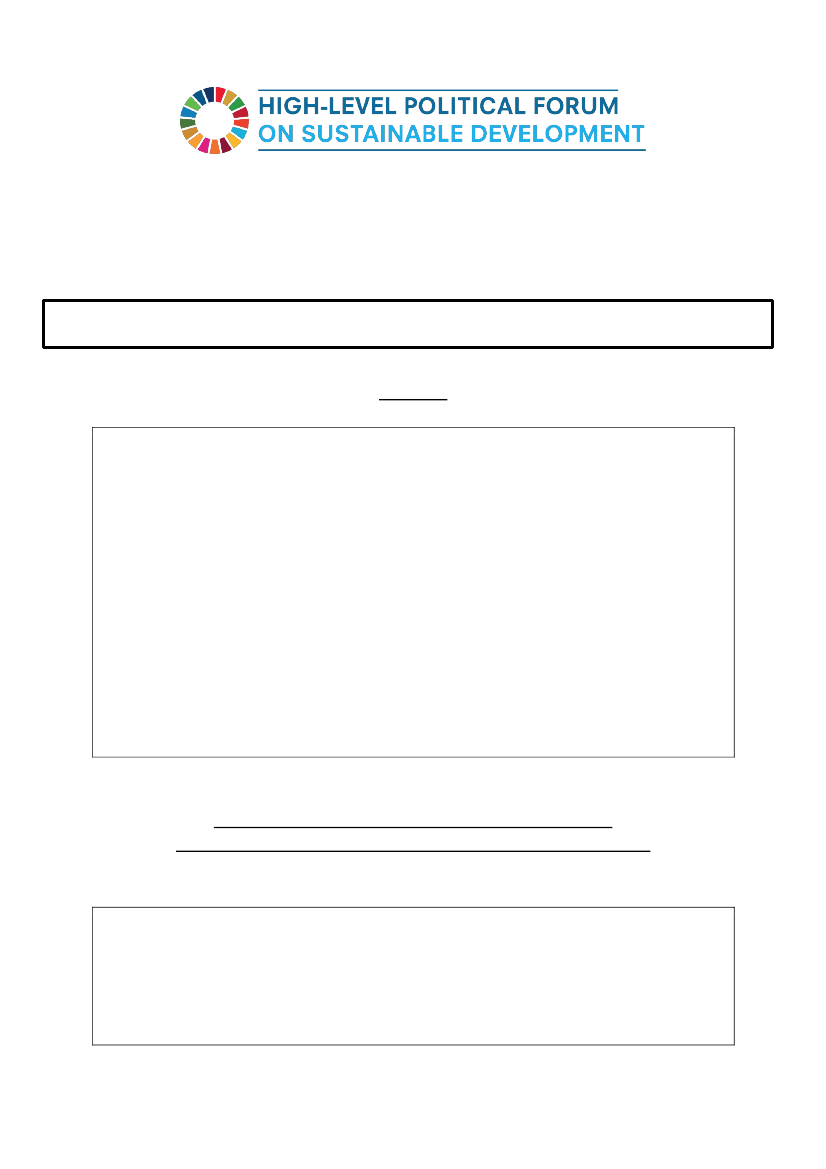
Annotated Programme as of 22 June 2020
Theme: Accelerated action and transformative pathways:
realizing the decade of action and delivery for sustainable
development
Tuesday, 7 July 2020
Tuesday, 7 July 2020, 9:00 AM-9:15 AM
Opening
The theme for the 2020 United Nations high-level political forum on sustainable development (HLPF)
and ECOSOC is
Accelerated action and transformative pathways: realizing the decade of action and
delivery for sustainable development
(GA decision 74/508). The
decade of action and delivery
was
launched by Heads of State and Government at the SDG Summit in September 2019 in order to step
up progress towards the SDGs and put the world on track to realize their targets by 2030.
In light of the coronavirus disease 2019 (COVID-19), the HLPF will examine the severe impacts of the
pandemic on the progress in the implementation of the 2030 Agenda and the Sustainable
Development Goals (SDGs). It will discuss concrete measures to address the impacts of the pandemic
and get back on track to accelerate progress towards the SDGs during the decade of action. It will
discuss how the SDGs can serve as the guideposts for building back better, leaving no one behind. It
will highlight the importance of international solidarity and a multilateral response to the pandemic.
Chair and opening remarks:
•
H.E. Ms. Mona Juul,
President of Economic and Social Council
Tuesday, 7 July 2020, 9:15 AM-12:00 PM
Launching the decade of action at a time of crisis:
Keeping the focus on the SDGs while combatting COVID-19
(The impact of COVID-19 on the SDGs, SDGs Progress report, 2020 targets, regional dimensions and countries at different
levels of development, including middle-income countries, data, institutions for integrated policy making)
The COVID-19 crisis is likely to have a profound effect on progress towards the sustainable
development goals. COVID-19 is not only a threat to our health, but a human crisis of multiple
dimensions. It might push tens of millions of people back into extreme poverty and hunger and is
impacting the livelihoods of half of the global workforce due to unemployment or underemployment.
This is happening at a time when we were still not on track to achieve the SDGs by 2030 and we were
launching a decade of action to accelerate progress.
1